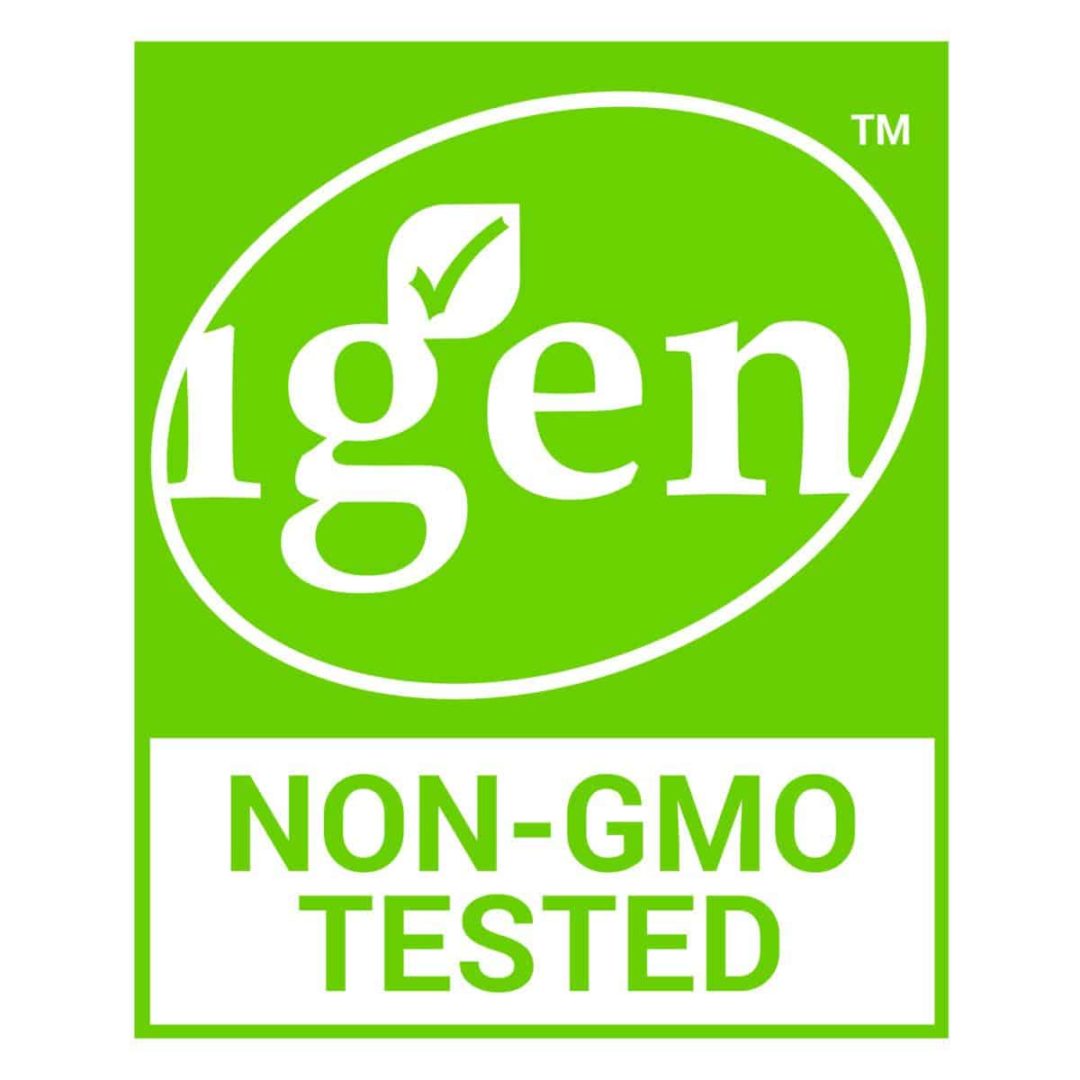This is becoming particularly important as language changes. GMO is a fairly well-known term. How about GE (Genetically Engineered)? BE (Bioengineered)? Do these words raise the same red flags for consumers? And coming at it from another point of view, consumers who do recognize the changing language may be concerned that new terms for the same process may make it to labels before they’re aware of it, leading to them purchasing products containing unwanted GMOs. Third-party testing, from a trusted source, with a recognized label, can give consumers reassurance that a company that knows the science and knows what to look for has looked, and has found nothing.
That’s where Nutrasource comes in.
We offer the IGEN™ program: the International GMO Evaluation and Notification program. The aim of this program: to verify label claims regarding the presence of GMOs in products and ingredients, with an eye towards providing consumers with the ability to view freely available third-party verified testing results before they choose whether or not to purchase a product.
How It Works
Enrolling in the IGEN™ program has some prerequisites: Manufacturers have to verify that a quality control process is in place for each item to be tested. This includes a current GMP certificate or equivalent (such as ISO 9000, NSF International Standard 193, Hazard Analysis Critical Control Point, USDA or Canada Good Agricultural Practices, or Non-GMO Project certification, to name a few acceptable substitutes), a Material/Product Certificate of Analysis, and master formulation/Bill of Material. GMP requires companies to provide documentation and records of process control, traceability, employee training, product sampling, and product testing, as well as other records confirming an existing quality process.Once those requirements are fulfilled, the ingredient or product is subjected to a full IGEN™ Program Testing Panel. The testing process extracts any DNA and proteins from the sample, which are then checked for GMO/GE elements. If no GMO DNA or proteins are found, the product is eligible to be enrolled in the IGEN™ program.
This matches the United States Department of Agriculture (USDA) National Bioengineered Food Disclosure Standard, which was announced on December 20, 2018. The BE Disclosure Standard defines bioengineered foods as “those that contain detectable genetic material that has been modified through certain lab techniques and cannot be created through conventional breeding or found in nature” (2). This BE Disclosure Standard is rooted in a fundamental point about genetically modified DNA: If it isn’t detectable in testing, consumers aren’t being exposed to it. The IGEN™ Program Standard—published in 2016 and revised in 2018—holds products to this definition.
Once products are enrolled, they enter an ongoing compliance phase. Products are required to be re-certified annually, with the same requirements as the initial enrollment. The manufacturer of the ingredient or product provides test samples to Nutrasource for testing, along with sufficient documentation to verify origin of the sample. Nutrasource also conducts an annual review on the relevant GMP (or equivalent) certificate to ensure that manufacturing and quality control processes remain compliant.
Additionally, Nutrasource may perform annual “Surveillance” testing, collecting a random lot with the expectation that the results will match the results from the samples sent by the manufacturer. The results must match for the manufacturer to maintain certification. Manufacturers will appreciate the level of reassurance this offers their customers.
On the consumer end, as well, IGEN™ offers increased transparency. Consumers can visithttps://certifications.nutrasource.cato find a list of all products tested by Nutrasource—through any of our certification programs—and can sort by IGEN™ Non-GMO to find a list of all brands offering certified products. Consumers can find out which products, specifically, are IGEN™ tested, and can get contact info for the brands themselves if consumers have further questions. Busy customers looking to find a brand that meets their wellness standards will love this feature, which offers an easy starting point to find non-GMO supplements.
Trust, but Verify
There’s only one way to know what’s in a product: testing it.Documentation is useful, but it only goes so far, and a company’s promise to keep manufacturing a non-GMO product is only useful when it’s verified. This is even more important in today’s world, following a year of unforeseen changes in sourcing, preparation, and sometimes even in product formulation itself—if a product was non-GMO in January 2020, how does anyone know if it’s still non-GMO now? Annual Compliance testing, as well as Surveillance testing, is the only way to verify that a product is free of genetically modified DNA. The IGEN™ label offers precisely that level of reassurance to wellness-minded consumers looking to avoid GMOs.
This content sponsored by Nutrasource.
References
- Morning Consult Staff, “What Words Consumers Like (And Don’t Like) on Food Labels.” Morning Consult. https://morningconsult.com/form/words-consumers-like-on-food-labels/
- “BE Disclosure.” https://www.ams.usda.gov/rules-regulations/be










